This post is part of “Cybersecurity and Election Interference,” a Brookings series that explores digital threats to American democracy, cybersecurity risks in elections, and ways to mitigate possible problems.
 From the very beginning of his presidency, Donald Trump has denied or downplayed Russian interference in the 2016 campaign. He has, at various times, dismissed the whole idea as a hoax, as fake news, or as an excuse by Democrats for why they lost the election. At other times, he has proclaimed his innocence vis-à-vis Russian campaign interference. From the earliest days of his presidency when he fired FBI Director James Comey in an effort to stop the investigation, he has denigrated and dismissed the entire issue. In its place he has insisted that the real problem in 2016 was not Russian interference but rather illegal voting by immigrants. The president’s beliefs have put him at odds with his own government and his own appointees, creating some awkward moments as the machinery of the federal government comes into conflict with the tweets of the chief executive.
From the very beginning of his presidency, Donald Trump has denied or downplayed Russian interference in the 2016 campaign. He has, at various times, dismissed the whole idea as a hoax, as fake news, or as an excuse by Democrats for why they lost the election. At other times, he has proclaimed his innocence vis-à-vis Russian campaign interference. From the earliest days of his presidency when he fired FBI Director James Comey in an effort to stop the investigation, he has denigrated and dismissed the entire issue. In its place he has insisted that the real problem in 2016 was not Russian interference but rather illegal voting by immigrants. The president’s beliefs have put him at odds with his own government and his own appointees, creating some awkward moments as the machinery of the federal government comes into conflict with the tweets of the chief executive.
In spite of the president’s antipathy towards the effort, the gears of government managed to grind on, even in the White House. On September 12, 2018, President Trump issued Executive Order 13848 titled “Executive Order on Imposing Certain Sanctions in the Event of Foreign Interference in a United States Election.” The order requires a post-election audit by the intelligence community, under the direction of the ODNI (Office of the Director of National Intelligence) and mechanisms to place sanctions—such as confiscation of property—on those who take actions to interfere in U.S. elections.
Executive Order 13848 was dismissed by many Democrats and some Republicans as inadequate. But it highlighted the sensitivity within the federal government to the president’s stance. First note the wording “in the event of foreign interference,” which indicates that interference may not happen after all—a break from the opinions expressed by many in the intelligence community. Second, in 2016 disinformation campaigns by the Russians were more successful than their attempts to break into election infrastructure, but the order is narrowly drawn to focus on election machinery and leave out disinformation efforts.
The president’s hostile stance became public in April of 2019 when the Secretary of DHS Kirstjen Nielsen was told not to bring up election security in front of the president. Nielsen had been pushing for a White House-led Cabinet meeting on securing the 2020 elections. While DHS has the lead, election security crosses many federal government departments. A Cabinet-level meeting would help put the issue front and center. But the Secretary’s attempts were foiled and she was forced out that same month.
Other parts of the federal government besides DHS are critical to election security as well—particularly the intelligence community. In January 2019, the Director of the Office of National Intelligence, Dan Coats, delivered an annual Threat Assessment. This exercise is designed to prioritize the threats facing the nation that have been gleaned from the various intelligence agencies. The first threat he mentioned was election security: “We assess that foreign actors will view the 2020 U.S. elections as an opportunity to advance their interests.” Election security topped threats from China, Russia, North Korea and Iran, which, the DNI noted, are all advancing their cyber-capabilities. Predictably, the report made the president angry—although his anger appeared directed as much at their assessment of the Iranian threat as their assessment of other threats. Once again, the president attacked the intelligence community, telling them in one tweet to go back to school.
Trump’s allies in the Congress have also been hostile to the election security issue. Immediately after former Special Prosecutor Robert Mueller delivered his clear-cut warning to the nation that the Russians were already actively attempting to interfere in elections, Senate Majority Leader Mitch McConnell blocked two bills, calling them “partisan.” The first one, sponsored by Senate Minority Leader Chuck Schumer (D-NY) would require the use of paper ballots in elections. It passed the House on a party-line vote. The second one, sponsored by Senator Richard Blumenthal, (D-Conn.) would require candidates, their family members and their campaign staff to report offers of assistance from foreign governments to the FBI.
McConnell’s actions caused the Washington Post columnist Dana Milbank to call him a “Russian asset.” Then MSNBC’s Joe Scarborough dubbed him “Moscow Mitch,” a name that Speaker Nancy Pelosi (D-Calif.) picked up and used in a speech. The moniker quickly went viral, irritating the majority leader and highlighting the Republican leader’s legislative inaction.
One can look at Trump and McConnell’s resistance to preparing to secure the 2020 elections in two ways. On the one hand it is clear that had they aggressively pursued the issue it would have resulted in more resources and greater cooperation across the government. On the other hand, Congress did appropriate $380 million in election security grants to states before the 2018 elections. Little of that was spent however, because the money came so late—but many states are planning to spend the rest in preparation for 2020. The FY 2020 appropriations bill passed out of the House provides for another $600 million in election security grants to “augment state efforts to improve the security and integrity of elections for Federal office.”
And, below the level of the president and the majority leader, the federal government and the states have been ramping up their expertise and preparedness. Whether any of this will prevent interference in 2020 remains to be seen. If it does, it will be in spite of the president and his GOP allies in Congress.
The Brookings Institution is committed to quality, independence, and impact.
We are supported by a diverse array of funders. In line with our values and policies, each Brookings publication represents the sole views of its author(s).

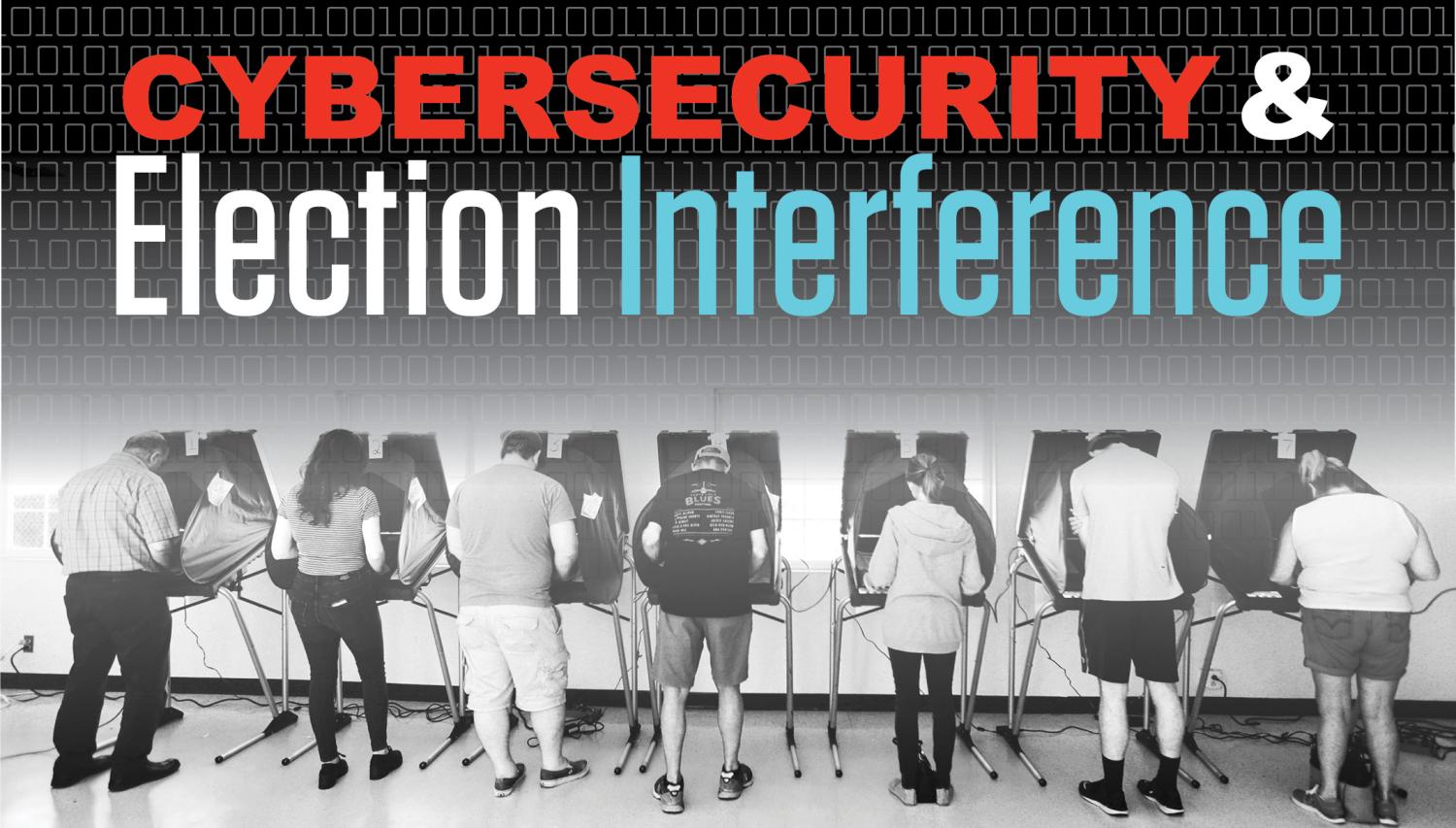
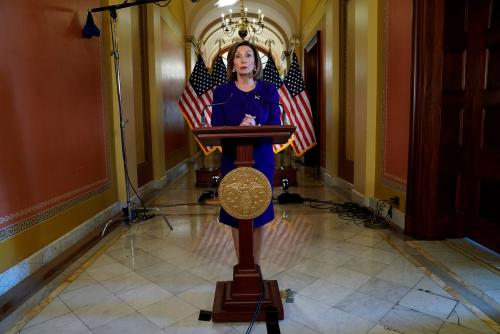
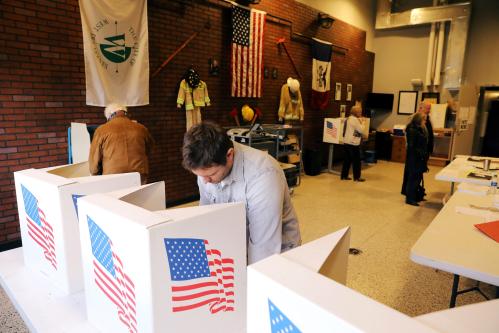
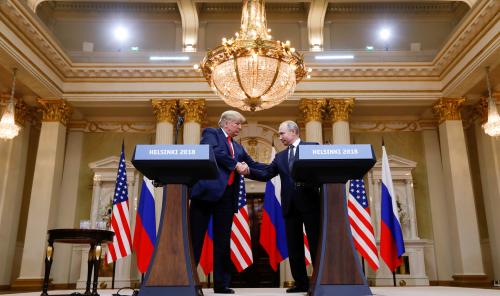
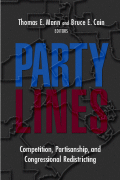
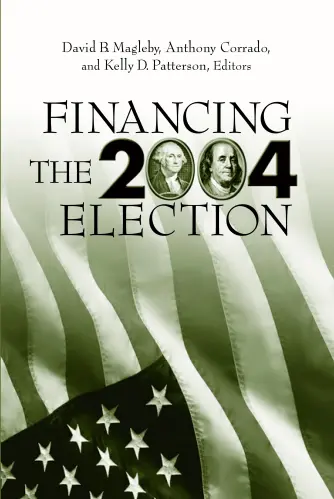
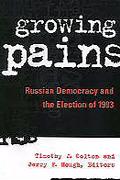




Commentary
Trump’s hostility to election security preparedness
August 28, 2019